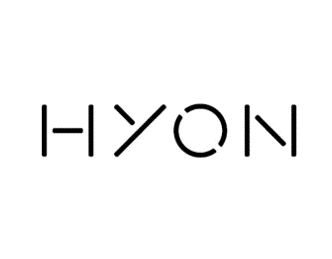123Fab #19
1 topic, 2 key figures, 3 startups to draw inspiration from

Green Hydrogen – Water Electrolysis for a greener future
Hydrogen (H2), alongside renewables and natural gas, could play a key role in the energy transition by fostering the decarbonization of industries, with the versatility to provide mobility, power systems, heat and industrial services. Substituting polluting fossil fuels with hydrogen — which emits water only when burned – could significantly reduce greenhouse gas emissions and stave off climate change.
Although hydrogen is a very low-carbon energy, it does not exist naturally on earth and is mainly produced from a range of more or less environmentally friendly chemical sources and processes. There are commonly three types of hydrogen: grey, blue and green.
- Grey hydrogen is produced by chemical reactions – steam methane reforming and coal gasification – and by the use of carbon-intensive fossil fuels (natural gas, oil and coal).
- Blue hydrogen is produced the same way as grey hydrogen, but the main difference is that it has a lower carbon footprint. This is because hydrogen uses carbon capture technologies that prevent the release of CO2 and allow the captured carbon to be stored and reused in industrial processes. Blue hydrogen is more expensive than grey hydrogen.
- Green hydrogen is produced by the electrolysis of water, which uses an electric current to break apart water molecules (H2O) into hydrogen (H2) and oxygen (O2). If the electrolysis is realized using renewable electricity (solar PV or offshore wind turbines), the resulting hydrogen is the cleanest variety, producing zero carbon emissions.
The global hydrogen production is dominated by grey hydrogen: according to the International Energy Agency (IEA), 96% of the hydrogen manufactured in the world is “grey”, while less than 0.1% is produced by water electrolysis. This is mainly due to the lower price of grey hydrogen production compared to blue and green hydrogen. The IEA estimates the price of grey hydrogen at around €1.50 per kilo – the main cause being the price of fossil fuels – and between €3.50 and €5 per kilo for green hydrogen. The three most critical factors for the high cost of green hydrogen are 1) the limited and costly capacity of electrolysis at the moment, 2) the high price of green electricity used in the electrolysis process and 3) the costs for safe and clean transportation.
The widespread adoption of green hydrogen remains extremely slow, but the future of clean H2 could be bright. Major players are taking action to stimulate R&D around green hydrogen production, transportation and industrial applications. The European Commission, for instance, strongly believes in the prospective use of green hydrogen to decarbonize heavy industries and transportation, as demonstrated by the adoption of the European Green Deal in January 2020 to support innovation in clean hydrogen and low-carbon resources. The Covid-19 crisis has introduced a new impetus: France and Germany plan to collaborate and invest €7bn and €9bn respectively in green hydrogen R&D projects. Large corporate companies, including Shell, Airbus and Chevron, are also seizing the opportunity to invest in clean hydrogen technologies and applications.
The market is still extremely young, and there is still room for progress. Startups are positioning themselves either in the improvement of hydrogen storage, transportation and distribution, or in the development of new applications (fuel cells for vehicles, industrial use cases), or in the development of new alternatives for H2 production and electrolysis methods (such as alkaline, Polymer electrolyte membrane (PEM) or solid oxide electrolysis).
2 Key Figures
645 hydrogen fuel startups
in the world, according to Startup Insights
Market size expected to reach $2.28bn by 2027
According to PRNewswire, the global green hydrogen market size was valued at $787 million in 2019 and is expected to reach $2.28bn by 2027.
3 startups to draw inspiration from
This week, we identified three startups that we can draw inspiration from: Enapter, Hyon and PowerUP Energy Technologies.

Enapter
Based in Germany, Enapter makes highly efficient green hydrogen generators with scalable electrolysers (Anion Exchange Membrane) to replace fossil fuels.

Hyon
Hyon is a Sweden-based startup that develops and delivers turn-key solutions for the complete hydrogen value chain, from production to utilization, for the maritime sector.

PowerUp Technologies
PowerUP is a US startup that provides clean and portable energy by delivering a hydrogen fuel cell backup generator solution, which can be used for various use cases in transportation.
